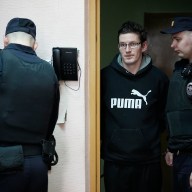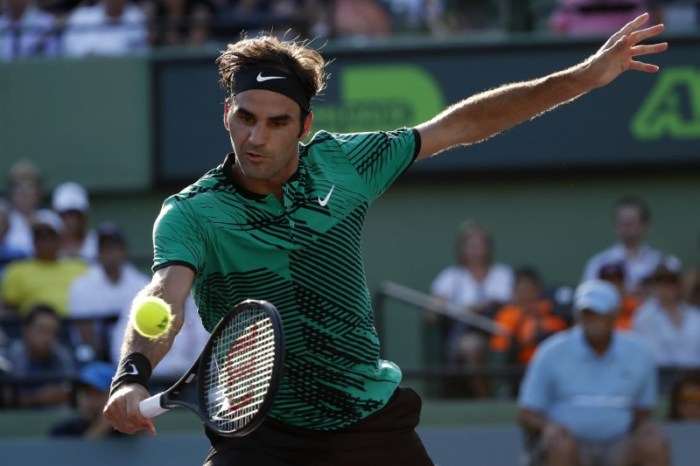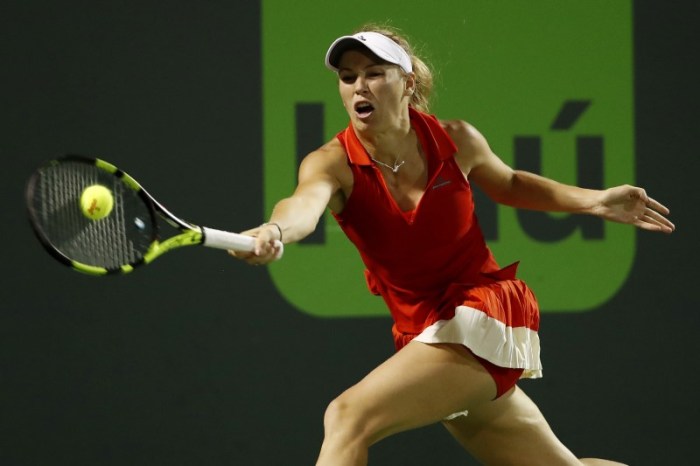By Mark Lamport-Stokes
(Reuters) – Seven years after successfully pleading its case to be re-admitted to the Olympics following an absence of more than a century, golf is on increasingly shaky ground as it prepares to be showcased at the Rio Games next month. Three of the world’s top-10 players in the men’s game have already opted out of Rio, along with four other former major winners and exciting Japanese talent Hideki Matsuyama among others. More withdrawals are likely to follow suit. Australian world number one Jason Day and fourth-ranked Rory McIlroy were vocal backers of Olympic golf until they decided not to go because of concerns over Zika, a mosquito-borne virus that is spreading across the Americas. However, four-times major champion McIlroy of Northern Ireland indicated at last week’s French Open that Zika fears were not the only reason for his withdrawal.
“Most other athletes dream their whole lives of competing in the Olympics, winning an Olympic Gold, and we (golfers) haven’t,” McIlroy said.
“We dream of winning Claret Jugs (at the British Open) and we dream of winning green jackets (at the Masters). Whether that makes golf look insular in any way … it’s just the way it is.” World number eight Adam Scott of Australia, another notable absentee, told Reuters a year ago that he was unlikely to be in Rio as he considered Olympic golf to be an “exhibition”, with other sports much more deserving of Games exposure. While only one women’s player, South African Lee-Anne Pace, has so far pulled out of global sport’s showpiece, the alarming exodus of so many high-profile names will not help efforts to grow golf worldwide on the back of the Rio Games. Furthermore, golf has only been guaranteed a spot in Rio and then in Tokyo for the 2020 Games, with future voting set to decide whether the royal and ancient game will remain within the Olympic family beyond then. Viewed by many as an elitist sport with a focus on the individual, golf does not fit the Olympic ‘mould’ for everyone and the ambivalence shown by many of its top players during the build-up to Rio could be doing irreversible damage. The July 11 deadline for golfers bidding to qualify for the Rio Games is fast approaching and American world number three Jordan Spieth, who has said he is still “uncertain” about going, is expected to make a decision by then. This was most certainly not the scenario expected when the golfing world joyfully celebrated its Olympic return in 2009, having overcome two main obstacles in presenting its case to the International Olympic Committee (IOC) for inclusion. “One, does our sport speak with one voice and two, what assurances can we make about the top players competing at the Olympics?” International Golf Federation (IGF) vice-president Ty Votaw told Reuters about the challenges facing golf at the time. FIRM GUARANTEES
Under the umbrella of the IGF, golf’s professional and amateur bodies did indeed present a united front in 2009 while firm guarantees were given that the sport’s leading players would compete at the Rio Games. Though golf was forced to answer tough questions on expensive equipment, men’s only clubs and environmental concerns, taped messages of support from former world number ones Tiger Woods and Ernie Els helped sway the IOC voting. Golf got the Olympic nod after earning 63 votes for inclusion and 27 against.
However, Votaw did sound a note of caution, saying: “The tricky part is that no one knows who the top players are going to be in 2016. All we can do is take the top players of the day and present to the IOC their public statements of support.” Votaw’s comments in 2009 certainly ring true today with the Rio Games not receiving unanimous support from the leading players of this era.
Australian Scott has been the most outspoken, telling Reuters: “Whether I win an Olympic medal or not is not going to define my career or change whether I’ve fulfilled my career.
“It’s nothing I’ve ever aspired to do and I don’t think I ever will. It’s all about the four majors for us and I think that’s the way it should stay for golf.” Speaking at last week’s WGC-Bridgestone Invitational in Ohio, Scott presented the case for amateurs rather than professionals competing in Olympic golf.
“If I think back to when I was 16 or 17 years old and a promising golfer, making the Olympics would be something I’d want to do very much and it would also be a very big deal, not only to me but to my country as well,” Scott told reporters. “If the idea is to grow the game, I’d make an argument that having the amateurs in the Olympics would grow the game the most, not us (professionals).”
Scott also disagreed with the playing format for golf at the Rio Olympics, 72 holes of individual strokeplay which is the bread and butter of every professional circuit around the world.
“Having another 72-hole golf tournament with a weaker-than-most field doesn’t really pique my interest,” he said. “A team event certainly would be interesting and get the most players there.” Concerns over the Zika virus, disagreement over the playing format in Rio and a hectic tournament schedule for the top men’s golfers in particular during the two months prior to the Games have not helped the sport’s cause ahead of its Olympic return. TWO SIDES
However, there are always two sides to every story and Brazilian golfer Victoria Lovelady believes the future of the game in her homeland is bright, simply because the sport is now back in the Olympics. “The general awareness about golf in Brazil has never been so big,” Lovelady told Reuters. “I talk to people all the time and there was never as much interest as there is now.
“Brazil is a country where golf is very small, it can only grow. The Olympic course will be the first public course and I hope they can keep it accessible, in terms of lessons and equipment rental and prices.” Lovelady, who is on the cusp of qualification for Rio as she occupies the 60th and final spot, felt that Zika fears had been overplayed in the media.
“Zika is a threat, but the chances of being bitten are very small,” she said. “The mosquito season is in the summer and the Games are in our winter so there will be less mosquitoes around. “As a Brazilian, I tell people I am not going to stop my life over this. You need to use repellent and take precautions, but it is not something that is going to stop my life.”
Asked about the growing number of golfer withdrawals from Rio, IOC President Thomas Bach said in a statement: “These are individual decisions taken by the players that stand in contrast to the WHO (World Health Organization) recommendations. “The IOC, of course, has to respect the decisions of the athletes, but it is obvious that this does not help the attractiveness of the golf competition.
“You can see that these are individual decisions just by looking at (Germany’s former world number one) Martin Kaymer, who recently said that the Olympic golf tournament is a top priority for him this year.” The IGF has said it “understands the challenges players face” while also regretting the absence of “a few leading players” from the “world’s greatest celebration of sport”. Sources close to the IGF hierarchy told Reuters that the governing body would prefer to judge the success of golf’s return to the Olympics only after the 2016 Games have ended, with a longer-term hope that the sport will emulate tennis. As golf will do next month, tennis returned to the Olympics after a lengthy absence and it did not attract all the leading players when it made its comeback for the Seoul Games in 1988.
Since then, however, it has steadily elevated its status among the players and a gold medal in tennis is now coveted just as much as a grand slam crown by most of the world’s best. Golf hopes to follow suit. (Additional reporting by Andrew Downie in Sao Paulo; Editing by Frank Pingue)


















